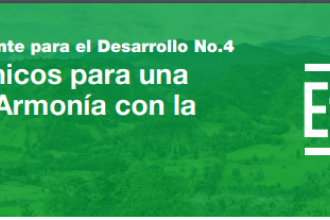EfD-Mak Centre at a glance (2019-2020)
The Environment for Development initiative (EfD-Mak) centre Uganda started its full operation in the Financial year 2019-2020. The center went through a full process of institutionalization and…
Policy Brief on, "Changes in Lake Victoria's Hydrology,Water Quality and Livelihoods". EfD-Mak Center Uganda November 2020
Key Messages
Lake Victoria Basin is facing a number of challenges:
Recreation demand and pricing policy for international tourists in developing countries: evidence from South Africa
National park agencies in Africa often lack incentives to maximize revenue, despite the decline in conservation subsidies from the State. We explore the potential of pricing policy to generate funds for extensive conservation. We estimate recreation demand by international tourists for a popular South African park, calculate the consumer surplus and find the revenue-maximizing entrance fee. Our results suggest substantial underpricing and therefore significant forgone income.

EfD-Mak Centre Hosts End of year (2020) Policy Dialogue on Changes in Lake Victoria’s Hydrology, Water Quality and Livelihoods
The end of year EfD-Mak Centre policy dialogue was held on 16th December, 2020 at Makerere University Senate Conference Hall. The policy dialogue attracted over 60 participants drawn from the members…
EfD-MaK Policy Brief on Changes in Lake Victoria's Hydrology, Water Quality and Livelihoods
KEY MESSAGES
Lake Victoria Basin is facing a number of challenges:
Environmental Implication of Sesame Production in Tanzania: A Case Study of Kilwa District, Lindi Region
This paper analyses the possibilities for sustainable land use management at farm level to preserve the tropical rainforest in the Lindi region, Tanzania. It investigates the implication of agricultural production, in particular a high valued sesame production on household deforestation in Kilwa district, in Lindi region.
Welfare and forest cover impacts of incentive based conservation: Evidence from Kenyan community forest associations
This paper examines whether offering landless forest-adjacent communities options to grow appropriate food crops inside forest reserves during early stages of reforestation programmes increases incomes of low-income households and conserve forests. We consider the forest cover and household welfare impacts of a unique incentive scheme in Kenya known as the Plantation Establishment and Livelihood Improvement Scheme (PELIS). PELIS seeks to deepen community participation in forestry, and improve the livelihoods of adjacent communities.

The fourth edition “Discussions on Environment for Development” is about the economic challenges for a balanced governance of natural resources
In the fourth edition of these documents, EfD Colombia researcher Jorge Marco Renau talks about the open discussion about how to govern in equilibrium with nature dynamics. He also presents an…
Can local communities afford full control over wildlife conservation? The case of Zimbabwe
Wildlife is widely becoming an important vehicle for rural development in most third-world countries across the globe. With wildlife, as with other conservation and development policies, policymakers are usually not informed about the needs and wants of poor rural households and roll out programmes that are not tailor made to suit their desires, which often results in policy failure. We use a survey-based choice experiment in this paper to investigate household preferences for various attributes of a wildlife management scheme. The survey was administered in
Pagination
- Previous page
- Page 21
- Next page
